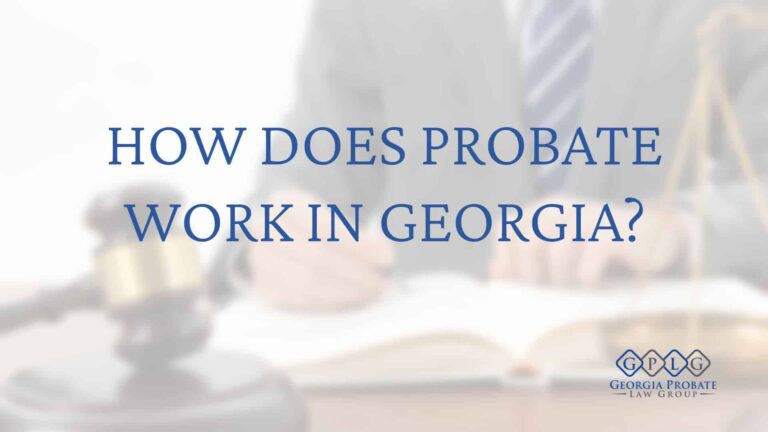When a loved one passes away and leaves a will, it will indicate the Executor or Co-executors, beneficiaries, and heirs. Plus, instructions on how the estate should be managed to accomplish the departed desires.
Who Is Usually the Executor? What Is a Co-executor?
When the deceased person leaves a will and names an individual to administer their estate after death, that person is called the Executor. If two persons are designated, they are called co-executors.
There may be situations when the person or persons named first do not want to serve as Executor. If a Successor Executor is listed, then that person can be the Executor of the Estate.
The initially named individuals would need to resign to allow the Successor to become appointed.
What Is the Meaning of Executor or Executrix?
When there is a will, this document usually identifies one person to act on behalf of the estate, an executor.
The decedent typically designates a family member, surviving spouse, a trusted lawyer, or anyone they consider qualified to fulfill their final wishes.
Should the nominated person accept the role, they will be responsible for:
- Managing the probate process.
- Estate administration.
- Paying all the estate’s debts.
- Distributing assets to the beneficiaries.
What Is the Executor in the Death of a Partner?
Having an Executor implies the existence of a Last Will and Testament left by the deceased. And it indicates who has been chosen by the deceased to settle the estate.
If there is no will, an Administrator is nominated to serve as Personal Representative to settle the estate. The heirs of the estate will choose an individual to serve as Administrator.
When the heirs disagree on who to appoint, the Probate Court may appoint an individual as the Administrator.
If the Probate Court appoints an Administrator, it can be someone from the family or a court-appointed Administrator.
What Is a Co-Executor of a Will?
When an estate is supposed to be managed by two people together, they are called Co-executors of a will.
The Co-executors named in the will will serve together in the role of Executor and will settle the estate jointly. They must act in unison and perform all duties of Co-Executors together, at the same time and same place.
Can a will have two executors?
Yes, if the will names Co-Executors in the will.
Can an executor appoint a Co-executor?
No, the will appoints the Co-Executors, and they will serve as Executor if the will is probated.
Suppose one or more persons do not wish to serve as Executor. In that case, they can renounce the Executor position and allow someone else to attempt to be appointed as Executor.
What is the difference between an Executor and a Co-executor?
The difference between an Executor and a Co-executor is that the Co-executor shares his authority with another person and must agree and collaborate entirely. All the decisions a Co-executor makes should be approved by the other person named Co-executor.
Co-executor Responsibilities
Being a Co-executor involves multiple responsibilities like:
- Acting in the best interest of the beneficiaries.
- Collecting and safeguarding the estate’s assets
- Notifying creditors and handling debts.
- Distribute assets according to Georgia law and respect the will instructions.
- Reporting when required. Suppose the court asks the Co-executor to obtain a bond, create inventories, or submit annual returns. In that case, he must promptly follow these requirements.
- Seeking discharge after estate affairs are resolved.
- Ensuring all responsibilities are done together as Co-executors as one Co-executor does not have the authority to act without the other Co-executor.
Here are some common examples of when Co-executors would need to work together in the best interest of an estate.
Let’s say the estate has a house that is for sale. Both Co-Executors need to sign the sale paperwork together.
If they don’t, or if one of them tries to do it without the other, that can lead to trouble because they don’t have the authority to sign that paperwork independently.
Another situation might be when Co-executors must write a check to pay a vendor. For example, hiring someone to clean and prepare the house for sale.
How do you find a Co-executor?
You don’t have to find a Co-executor. The deceased’s Last Will and Testament should name the Co-executors.
Do both Co-executors need to sign?
Yes, they’re supposed to sign checks together. And to take action together, jointly as a pair. Under Georgia law, both Co-executors must sign that check because, otherwise, the check wouldn’t be valid.
Can Co-executors act independently?
No, having Co-executors means having a partnership.
Under Georgia law, those two Co-executors must now act as one. And work as a team whenever they decide on the estate.
They must cooperate no matter what they need to decide or task to execute.
Is It Advantageous to Designate a Co-executor?
Based on our extensive experience, we recommend avoiding having Co-executors. The main reason is to avoid potential conflicts.
If the will specifies Co-executors, then it’s best to sit down and discuss best practices and develop an estate plan to ensure this process works correctly. And everything goes smoothly for everyone involved.
The best way not to disarray this up is not to have Co-executors at all.
Georgia Probate Law Group recommends against co anything. Practice shows it is preferable to have only one Executor.
For example, a typical situation occurs when one or both Co-executors are out of town or live in different states. In that case, we’re using FedEx or UPS a lot to move documents around. There’s a lot of logistics that can go into that.
Disadvantages of Appointing a Co-executor of a Will
- Co-executors must execute all tasks together. Under Georgia law, they must act together on all estate-related issues.
- Co-executors must approve all decisions and agree upon them. They should act as if they are one.
- When they live at an appreciable distance or in different states, that complicates the situation.
- Having Co-executors of a will could lead to family members conflicts.
What If a Co-executor Is Not Cooperating?
The first thing to do is to communicate to the bad-acting Co-executor that beneficiaries believe their actions are not in the estate’s best interest. And that they disapprove of the Co-executor’s actions.
In such a situation, the Co-executor must consider how to protect themselves.
It’s helpful to know that if the wrong actions of one Co-executor cause some harm to an heir, to a beneficiary, or to a third party, both Co-executors can be held liable for those actions. Even if only one Co-executor is misbehaving.
This is one of the few times in the law where someone may have a duty to take legal action or sue the other Co-executor. They may have an obligation to take the bad-acting Co-executor to court and formally file a legal objection to that Co-executor’s actions.
Next Step
If you’d like to talk with a specialist about handling a co-executor situation, please call our office at (770) 637-3272 or schedule a consultation. We’re happy to help.
More information
Disclaimer These websites have not been reviewed by Georgia Probate Law Group and are not endorsed or even recommended by Georgia Probate Law Group. These websites are additional resources that you can use to further your general education on this topic.
Disclaimer: The information above is provided for general information only and should not be considered legal advice. Our probate attorneys provide legal advice to our clients after talking about the specific circumstances of the client’s situation. Our law firm cannot give you legal advice unless we understand your situation by talking with you. Please contact our law office to receive specific information about your situation.




























